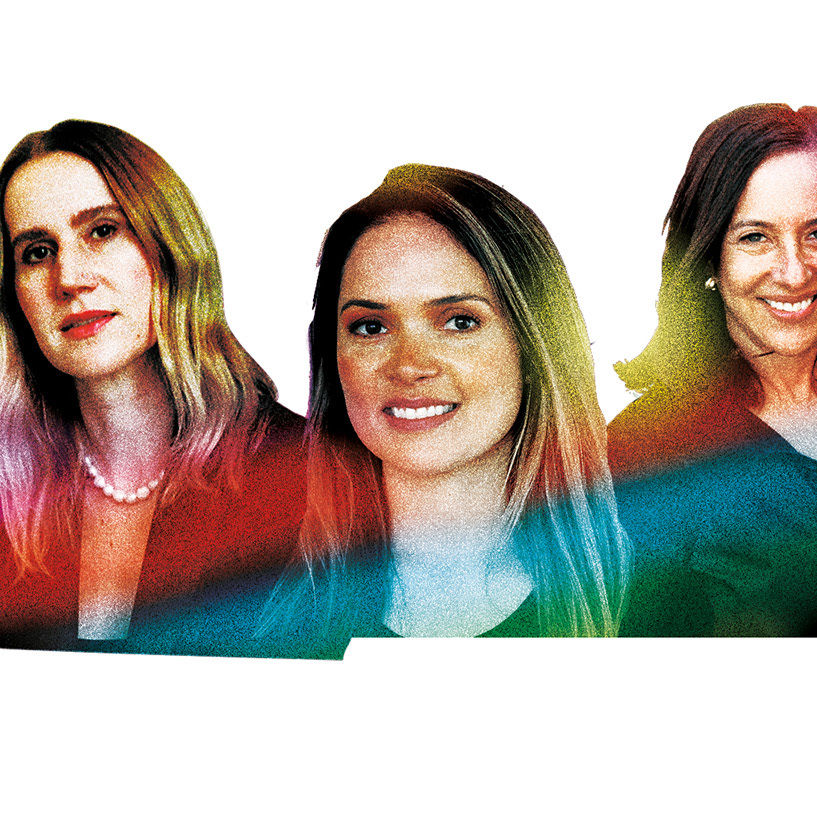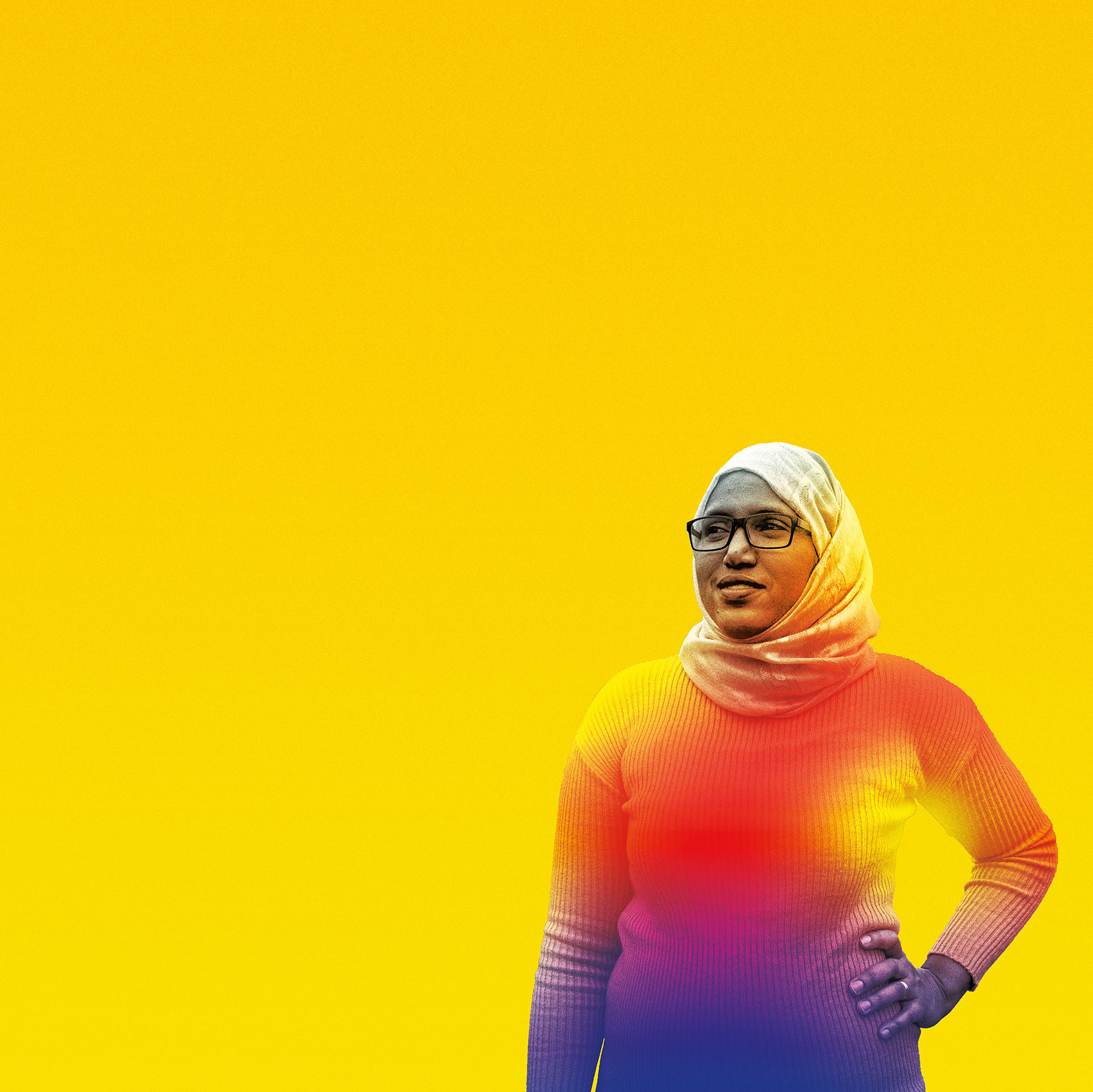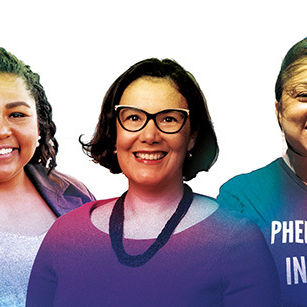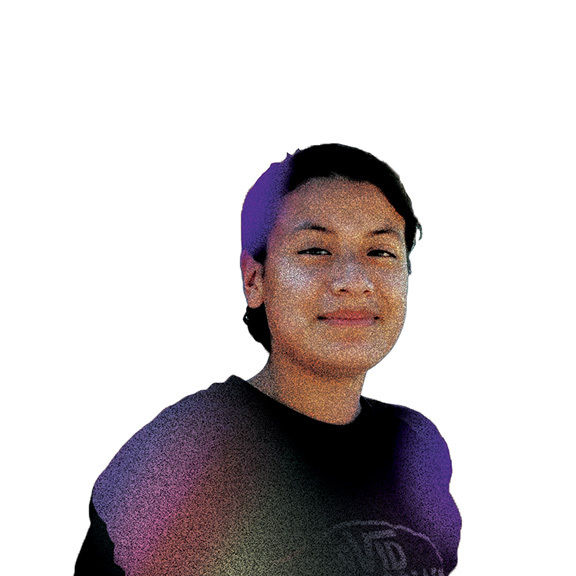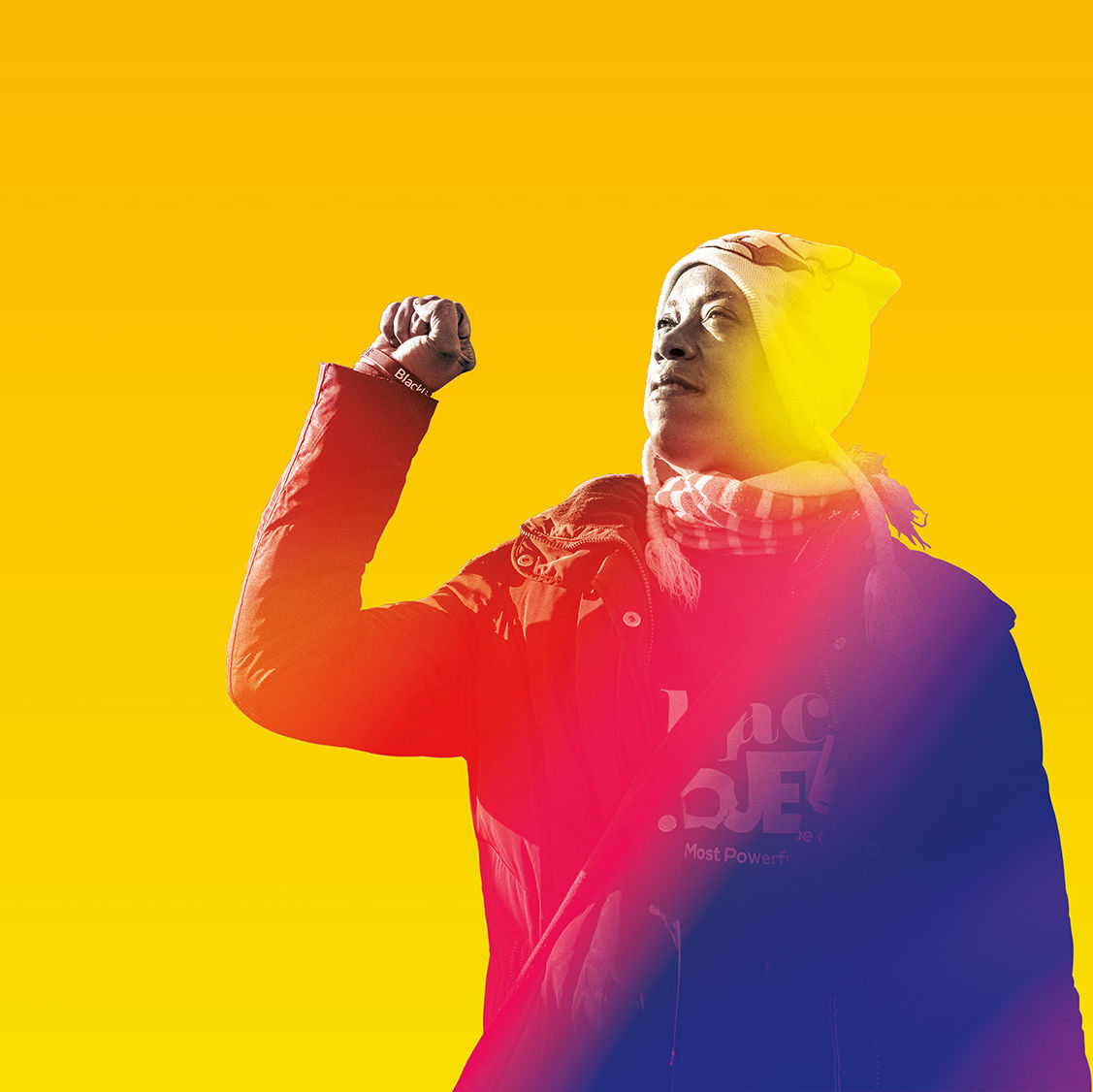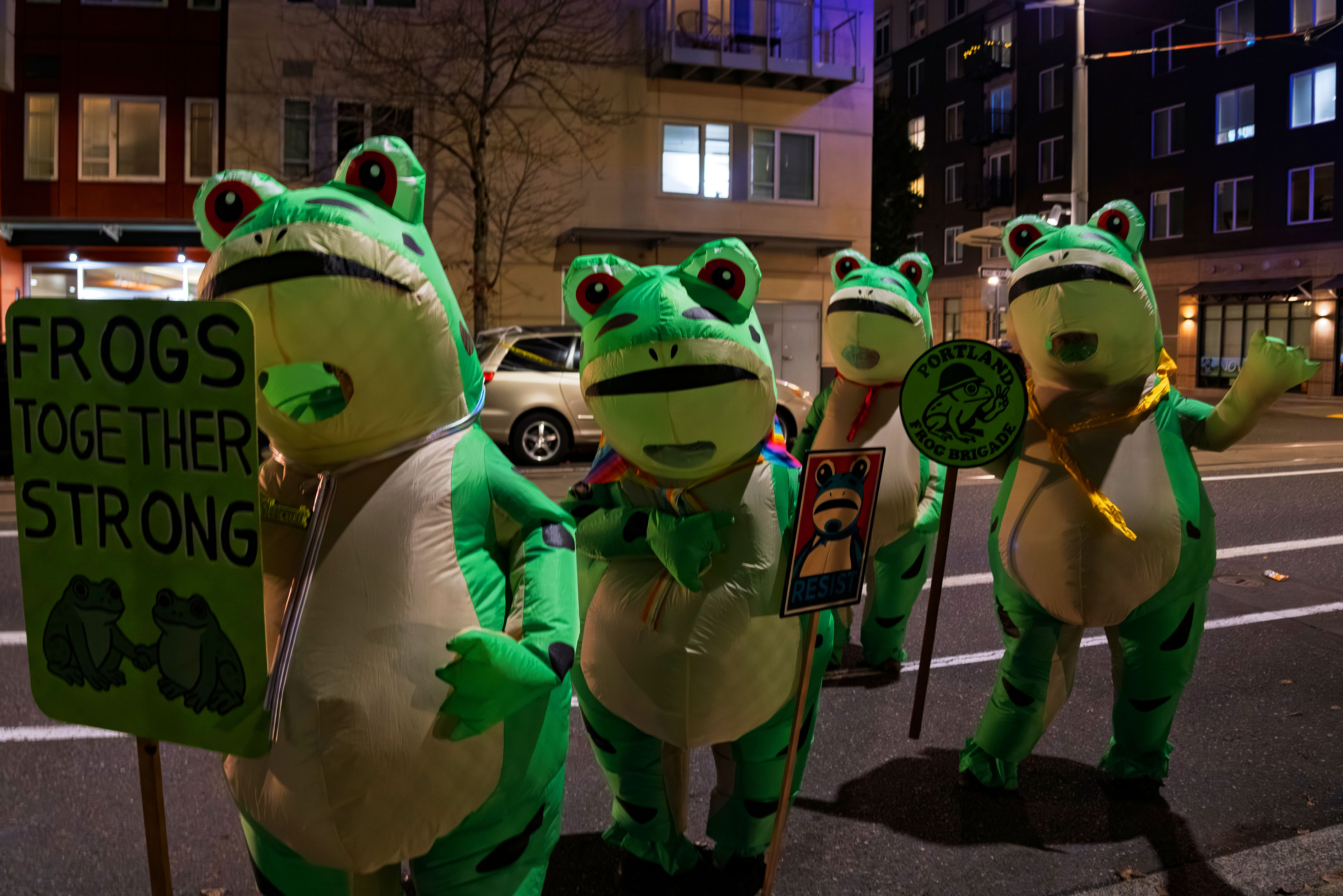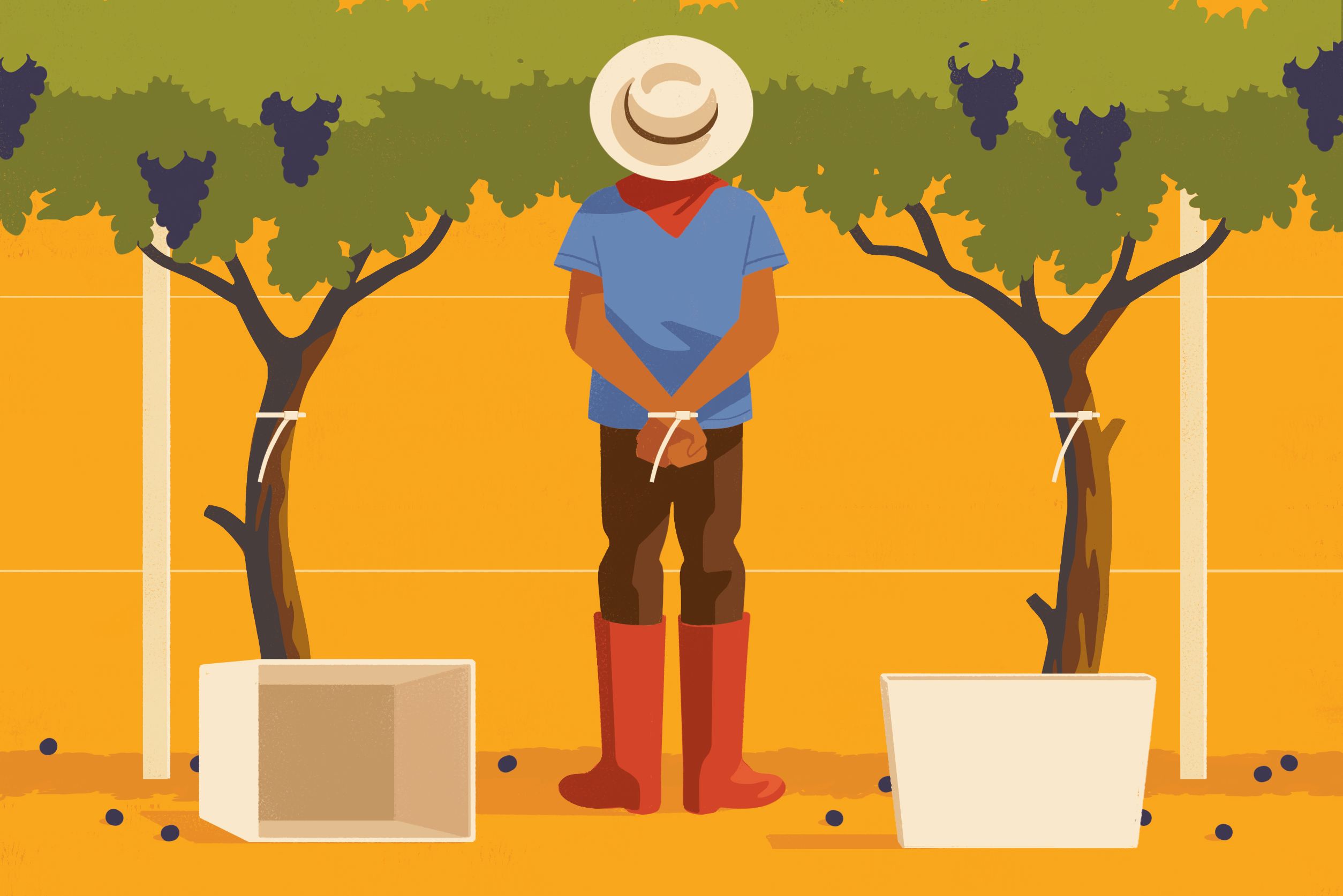10 Oregon Activists Pushing Us Forward
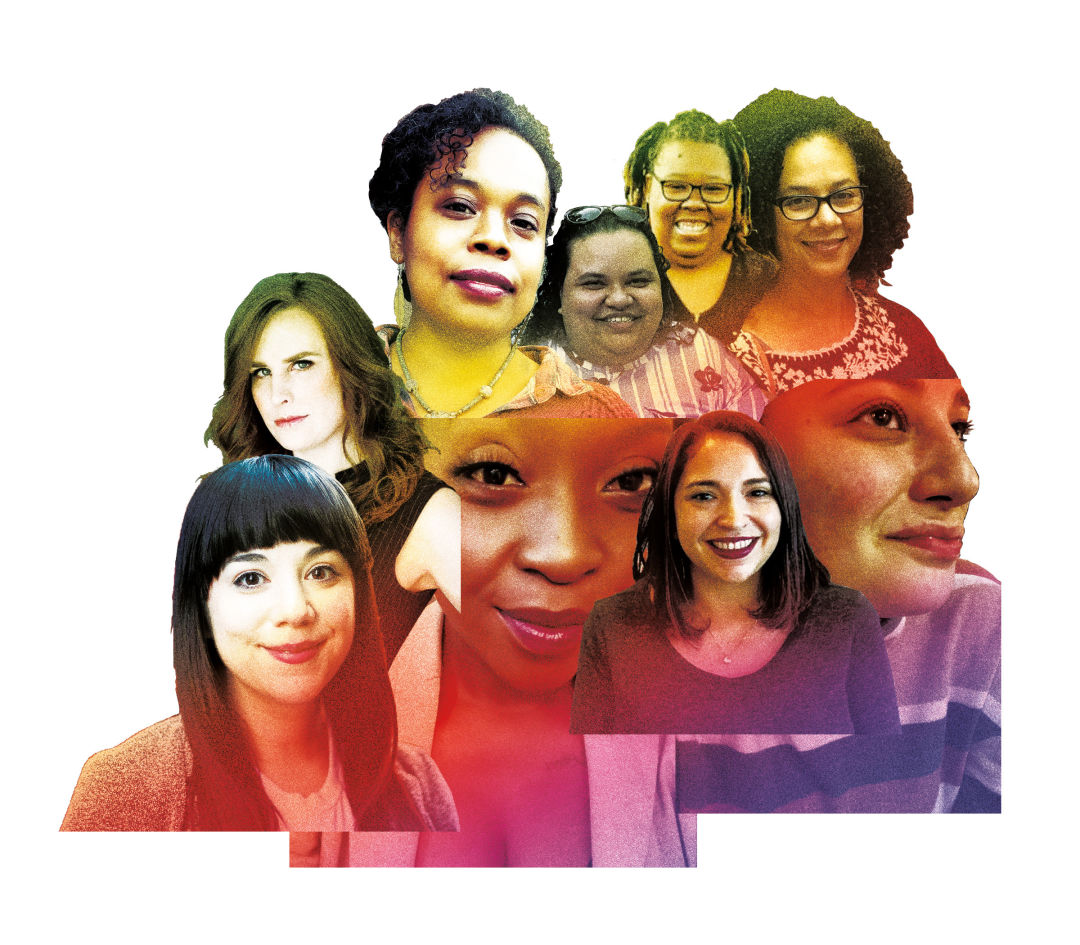
Oregon women are at the forefront of movements for change in our state, pushing back against unjust systems, spearheading mutual aid initiatives, activating communities, and lifting each other in the process.
For proof, see Mxm Bloc: a Black womxn–led group with a mission to mobilize around food justice, equitable housing, education, reparations, health care, and support to the Black community. Lenia Donell, Jaime Cale, Shawn Roberts, Rhiannon Patterson, AJ McCreary, Rashelle Chase, LaQuisha Minnieweather (pictured clockwise from top left), and Kalera Stratton (not pictured) began by giving out essential supplies—diapers, soap, toothpaste—at movie nights organized by the BLM protest support group Snack Bloc last summer. Since then, they’ve fed 500 families during the wildfires, when Portland Public Schools temporarily suspended food distribution, and been involved in community education around racial justice. “For hundreds of years, Black women were taking care of everyone else and everyone else’s kids,” says Cale. “We want to help them and their kids now.”
While Mxm Bloc looks at direct aid, Samantha Gladu (far left, bottom) works on policy and political engagement, as executive director of Next Up, a nonprofit mobilizing youth voters. But all voters have benefited from Gladu’s work. Next Up helped pass our automatic voter registration law in 2015, and more recently championed a bill making mail ballots postage free. This year, Gladu and Next Up are leading a movement to lower the voting age to 16, and working on a bill to restore voting rights to imprisoned Oregonians. Her focus too, is on racial justice. “It’s on all of us women to learn how to address the anti-Blackness within ourselves and our communities,” she says.
Anita Green (far left, top) has taken on the beauty pageant industry in her fight, suing Miss United States of America over gender identity discrimination for requiring contestants to be “natural born female.” Green sees intersectional feminism as a priority, and wants ”more women in leadership positions, particularly more queer and BIPOC women, so that issues surrounding sexual harassment, race, gender identity, sexual orientation, and income inequality can be better addressed.”

